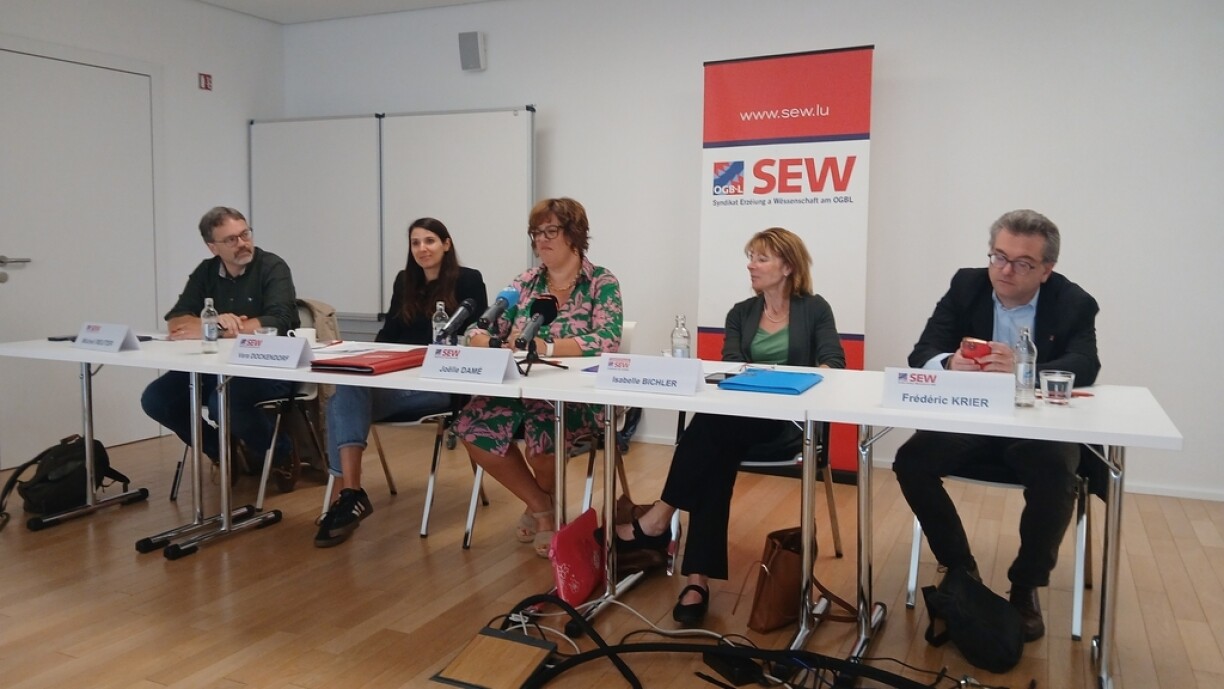
As over 60,000 students and approximately 6,500 teachers prepare for the new school year starting Monday, the OGBL’s Education and Science Union (SEW) has presented a series of demands, painting a concerning picture of the conditions within Luxembourg’s primary schools.
The union’s press conference began with a stark assessment: “Teaching staff are not doing well.” SEW representatives cited chronic underfunding, excessive bureaucracy, and governance issues within some school management teams as primary concerns.
A significant point of contention is the policy of inclusion for children with specific needs, which the union described as “well-intentioned” but “poorly implemented.” According to Joëlle Damé, the SEW official responsible for primary education, the situation is especially critical in Cycle 1. She explained that children in this cycle often lack a formal diagnosis or support, while challenges are increasing. Damé cited a rise in cases of children who are not toilet-trained upon starting school or who exhibit significant behavioural problems.
To address these issues, the union is calling for a second teacher to be assigned to every Cycle 1 classroom.
The SEW also expressed criticism toward the new “Alpha” literacy project for French. While acknowledging the initiative’s theoretical merit, the union warned that its rollout is too rapid and under-resourced. Additionally, they contend the project is not a universal solution, as it would primarily benefit “Franco- and Lusophone children from a medium to high socio-economic status.” For the most vulnerable students, including those from low socio-economic backgrounds or with developmental delays, Damé warned that French literacy alone is not the answer.
The union also fears the Alpha project will divert crucial resources away from children with learning difficulties. Damé pointed to an existing problem where teachers are already compelled to use remedial lessons and educational support hours to manage behavioural issues, thereby depleting resources intended for academic intervention.
She further highlighted statements from educational authorities suggesting that the mandatory hour-and-a-half of educational support provided by each teacher may need to be converted into direct teaching time simply to facilitate basic school organisation. “If you have two small parallel groups running, you need more resources for them,” Damé explained.
In the SEW’s view, a more efficient approach would be to teach German as a foreign language – a strategy they argue would not require hiring additional teachers but would merely involve adapting existing teaching materials.
Finally, the teachers’ union expressed regret that the ministry has not yet fully considered the project’s long-term impact, specifically what effects the Alpha programme will have on secondary education.